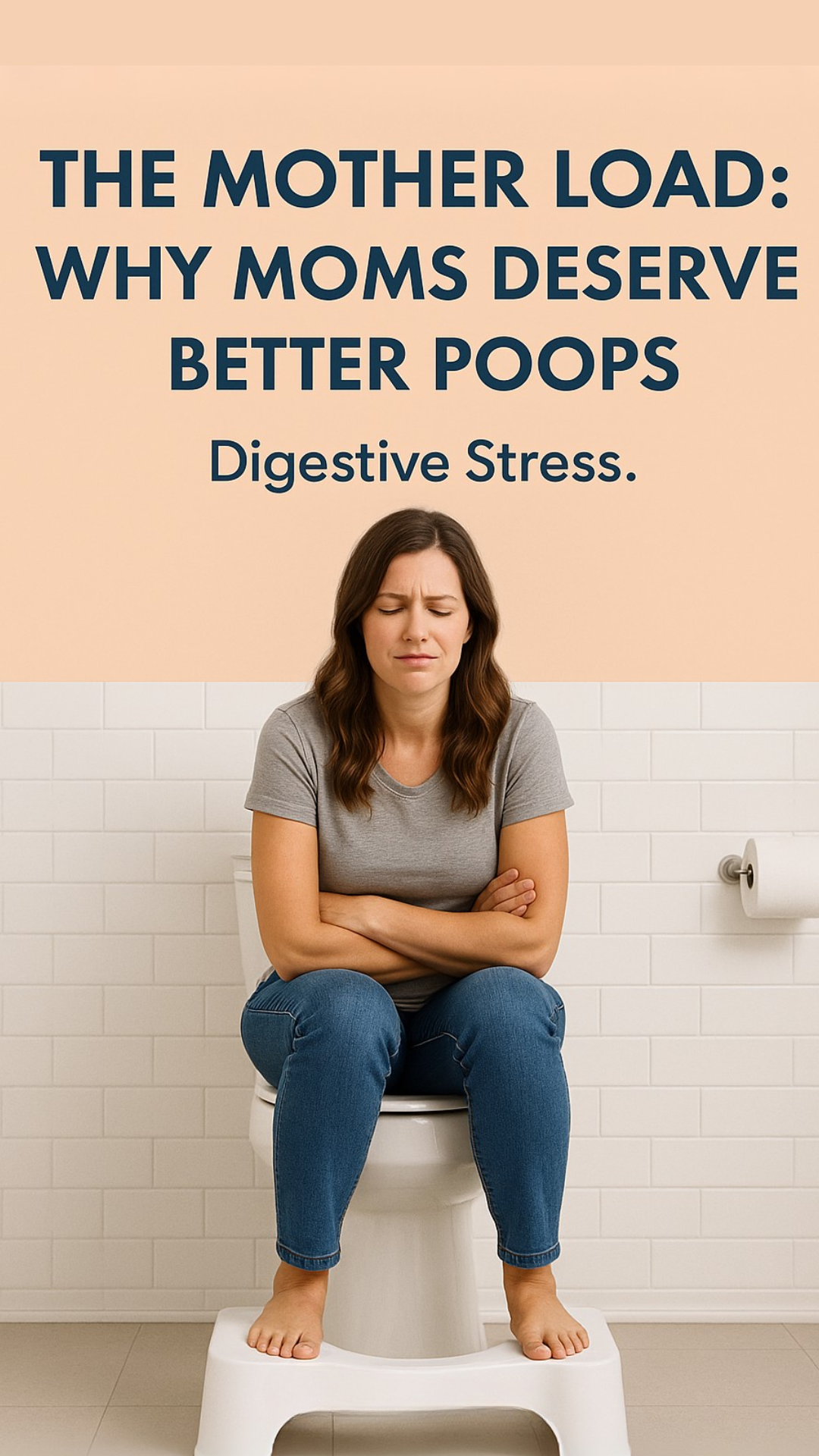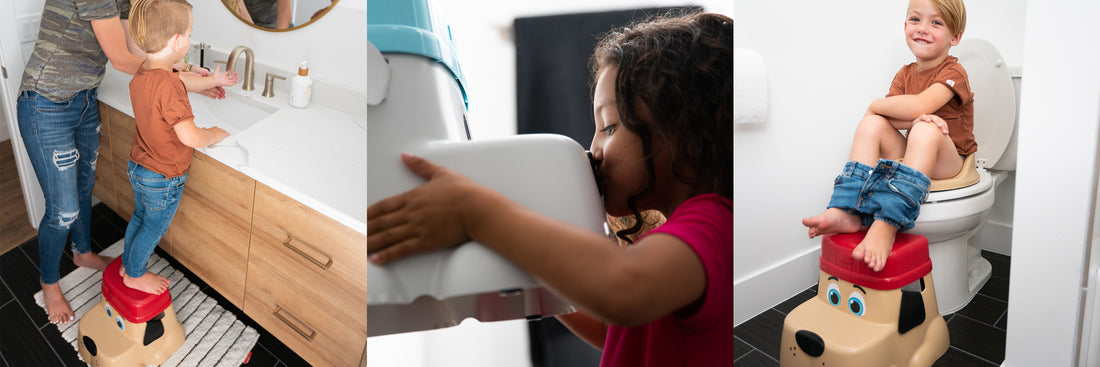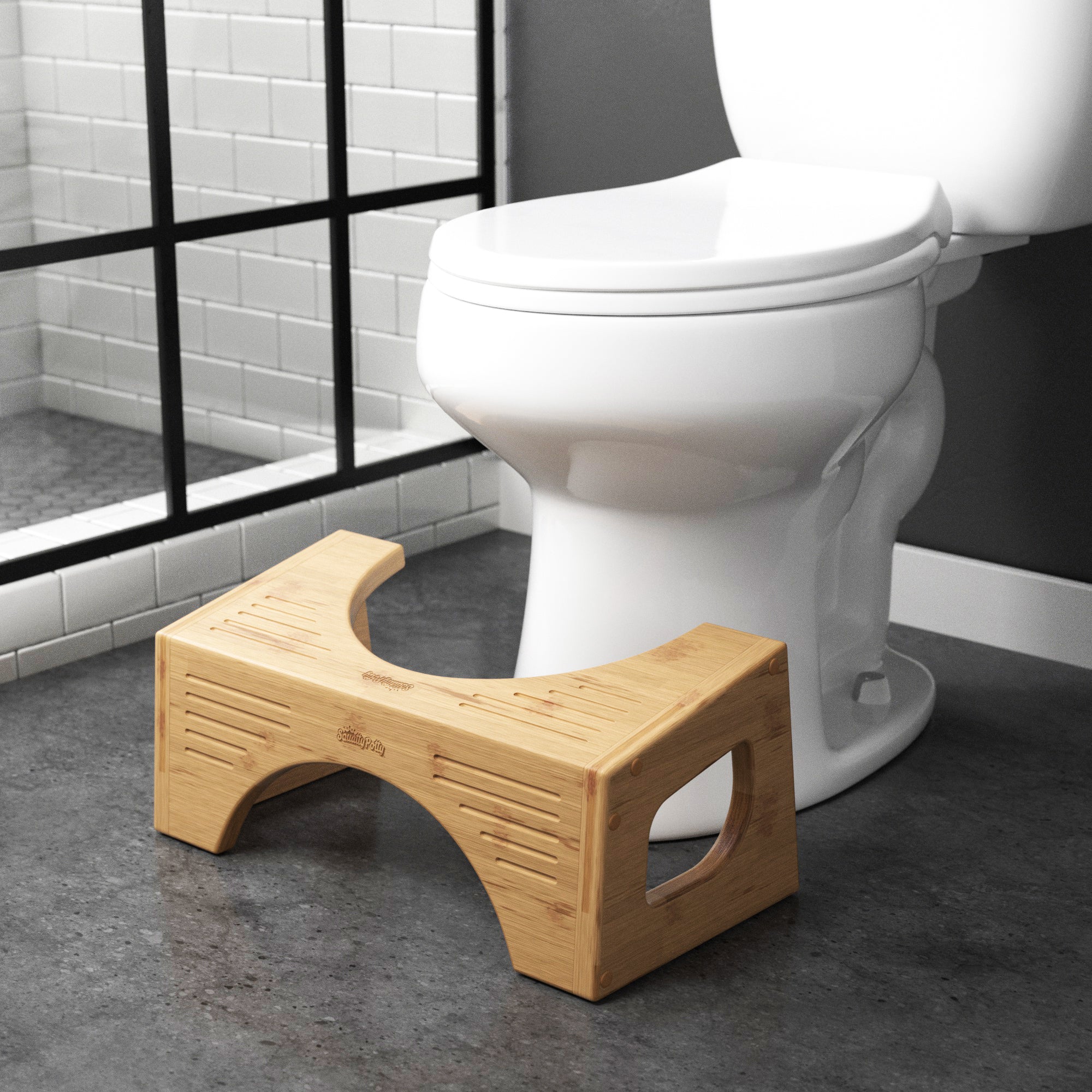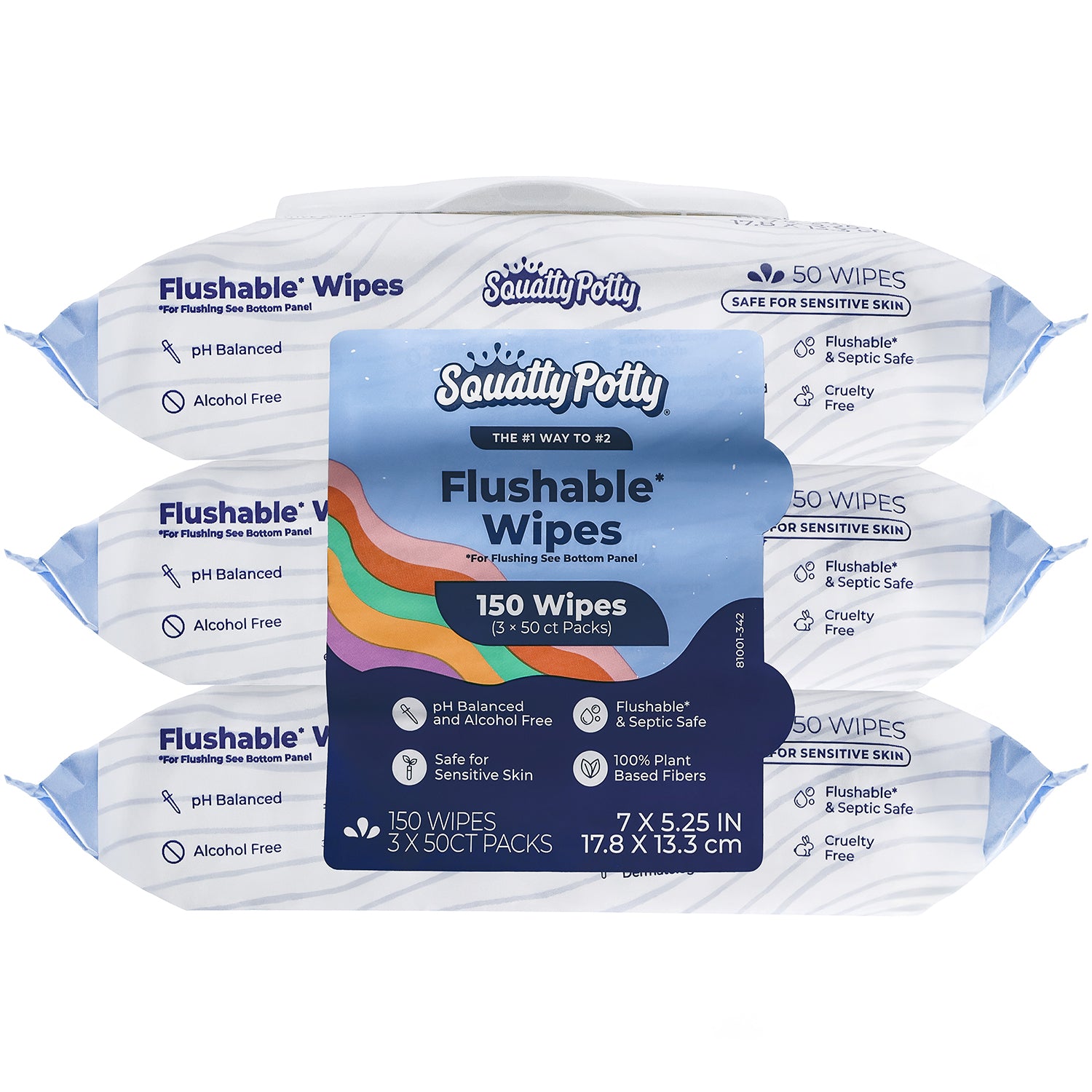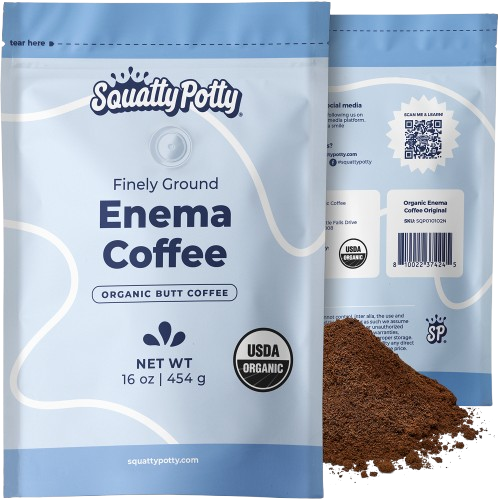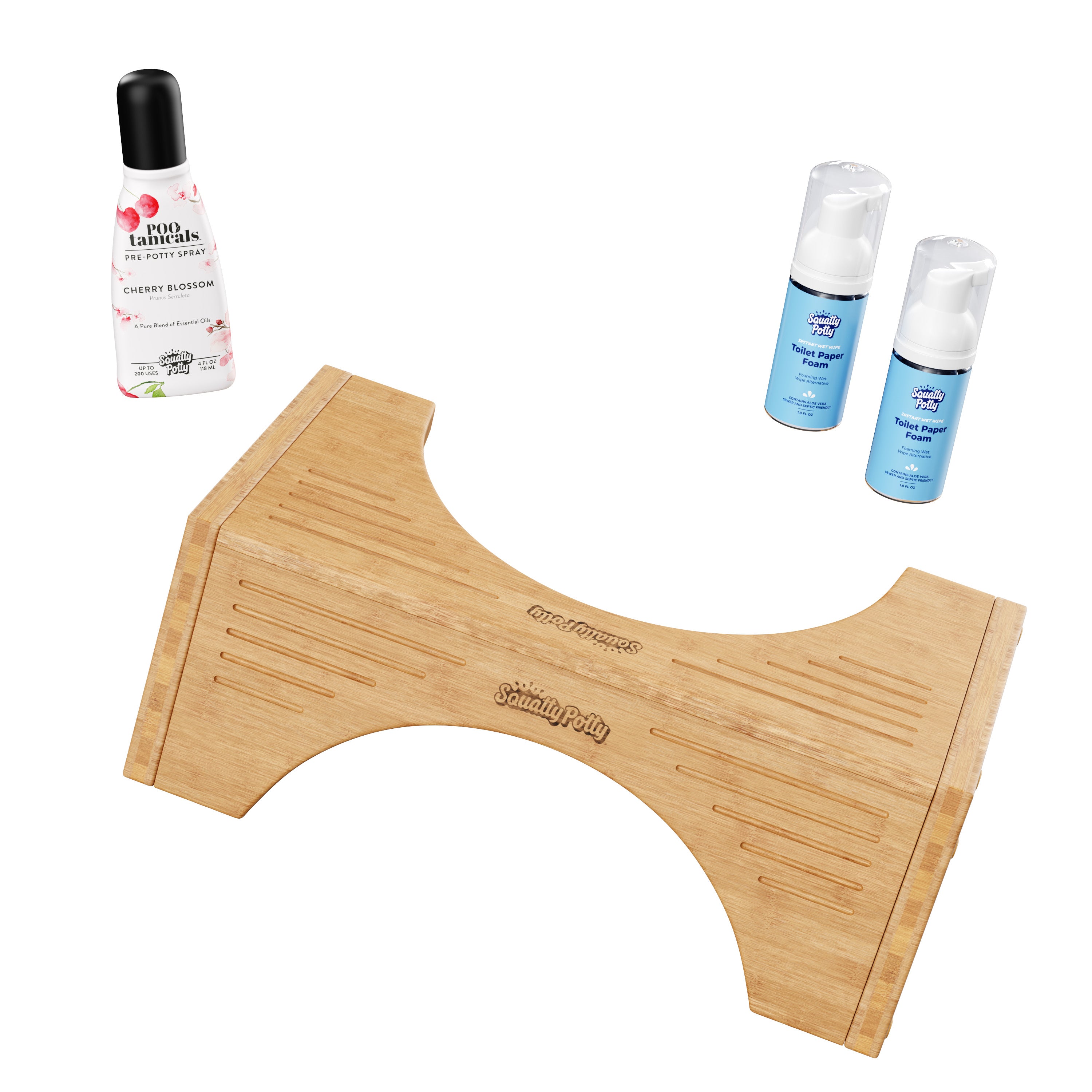Squatty Potty Blog
The Potty Training Tool You Can’t Live Without!
You’ll miss many things once your baby grows up, but changing dirty diapers is probably not one of them. Potty training horror stories are a common conversation amongst parents, but they may not stop there. Did you know that improper elimination in your child can lead to all sorts of health issues later in life? We’re not here to scare you, but we are here to educate you- with the help of an expert. Dr. Steve Hodges, a pediatric urologist and author of “It’s No Accident”,“Bedwetting and Accidents Aren’t Your Fault", “Jane and the Giant Poop”, and “The MOP Book”, has made his main focus dysfunctional elimination in children, due to the growing issue. “A lot of the issues lead back to how they poop. We found that if kids don’t empty their colon fully, it backs up and leads to urinary tract infections, bed wetting, day time wetting, and not to mention constipation. It’s way under diagnosed and way under treated. I focus a lot of my career directly on this problem. You can’t teach a young child to relax their pelvis. You have to relax your pelvis to allow those muscle to empty well. You can’t just tell a three-year-old ‘relax your pelvic muscle’ so they have to be in the right position or nothing works right.” Potty Pets is a toilet stool designed to put your child in the natural squatting position right over your own toilet. Squatting to eliminate is proven to straighten out your anorectal angle to prevent blockage of fecal matter in your colon and allow for a more complete elimination. Potty training can be difficult. Dealing with urinary tract infections, constipation, and bed wetting is even worse. Teaching your children how to properly eliminate from the start is the answer. Often times, children are a little hesitant to try out the “big kid potty”. We go more into addressing their toilet fears here. Many fears are validated; I mean, no one wants to fall in or off of the toilet. This is why we created a seat that securely sits on top of the toilet seat. The dog’s or bear's nose doubles as a step, allowing your children to safely and securely get on to the potty when they need to go. We’ve made potty training a safe and comfortable environment to let those potty fears flush away. Unlike other potty training tools, you won’t need to graduate from Potty Pets. As your child grows, you can take off the ‘hat’ topper to create the perfect height for your child. It’s even light weight and easy for them to carry. Creating a tool they look forward to using is key. With your order, you’ll receive stickers for you and your child to customize your Potty Pet your own way! Dookie The Unicorn also makes a great potty training pal. Dookie is a stuffed unicorn with a stuffed rainbow poop insert. You know that if Dookie the Unicorn poops in the big kid potty, they will too.
Learn moreHow To Be A Poop Detective
I am a mom, practicing Pediatrician and author from Phoenix, Arizona. I recently released a children’s book, How to be a Poop Detective. I highly recommend all humans squat when pooping just like toddlers instinctually do when they are eliminating in a pull-up. This is how our bodies are constructed and meant to poop. Therefore, I am extremely confident in my endorsement of the Squatty Potty®. It is one of the most ingenious inventions I have come across in my medical career. Why? Because we have a pooping-problem epidemic in this country and as a doctor, I am on the front line trying to teach families why and how to fix this. Entire aisles in stores are dedicated to a billion-dollar industry to unnaturally aid and assist our nations problematic pooping process with drugs. The Squatty Potty has been a miraculous addition to my crusade because it, like my book, offers a natural approach to help all Americans, big and small, poop easier. Squatty Potty and I have merged our happy-pooping mindset by modifying my book to create a Squatty Potty edition. In that, it displays the obvious reasons for our marriage. I am proud and excited to part of the Squatty Potty family and to share my labor of love with you. My calling, passion and motivation for writing How to be a Poop Detective, The Squatty Potty Edition stems from over fifteen years of practice where I have daily discussions with kids and families about dietary decisions which support a well-functioning digestive tract and how this relates to different health conditions. For this reason, I strongly believe that ‘poop education’ is an essential component of medicine and should be discussed on a routine basis. I regularly teach my patients and families that healthy poop indicates a healthy gut and thus, a healthier body. We also discuss how important it is to eliminate the “trash” in their “pipe” or colon daily. We talk about how to detect foods and drinks that clog our pipes and those that help to move them along and show how these choices along with the Squatty Potty, create a happy and efficient elimination process. How to be a Poop Detective, The Squatty Potty Edition helps to teach kids and parents all about what constitutes normal pooping. Many kids and parents are grateful for this education because they are unaware their bathroom experience isn’t what it should be. It is important to learn the “5 S’s” of poop: Shape, Soft, Sink, Shade and Shoot. Through this exercise, the smiles, giggles and curiosity often transition to amazement as we come to learn that constipation is an unrealized issue and a key factor responsible for their various ill symptoms. Hippocrates, the father of modern medicine said, “all disease begins in the gut”. I know many patients, both past and current, who will attest to the fact that when simple dietary modifications were made and the “5 S’s” monitored, their children’s disease states improved or were alleviated completely. Their asthma went away, ear infections declined, eczema disappeared, constipation resolved, urinary tract infections stopped, acne cleared, heartburn reduced, chronic abdominal pain stopped, and many lost weight because of cutting calories from unhealthy dietary sources. When you combine my simple approach with the Squatty Potty, everyone’s poop literally shoots out with ease as it should. They become professional expert poop detectives. Prevent constipation and have “the best poop of your life” with simple dietary modifications in addition to using the Squatty Potty! To conclude, the top five reasons to improve health by emptying your colon easily and successfully with a Squatty Potty: An empty colon allows for better ability to empty your bladder. Yay! It makes both #1 and #2 easier. An empty colon means less chance of having a bellyache. Chronic abdominal is so commonly caused by a full and constipated colon. It is one of the most common reasons for kids and adults to seek medical care. An empty colon eliminates the worry of having to hold your poop if you have fear of going in public. This is a real problem for many kids going back to school. An empty colon eliminates the need for pharmaceutical stool softeners. An empty colon decreases the potential for bedwetting and wet underpants due to an overfull colon and therefore, an overflowing bladder. I have found it to be an important addition for many families to aid in the potty training process. I am excited to recommend everyone use the Squatty Potty and to read and learn from How to be a Poop Detective, The Squatty Potty Edition. Here is to healthy and happy gut health and happy pooping!
Learn moreThe unexpected side-effect of Autism and how the Squatty Potty helps
To date, studies show that 1 in 68 children are diagnosed with autism. Autism is referred to as Autism Spectrum Disorder or ASD and is a developmental disability that can cause a range of mild to severe social, communication and behavioral challenges. There is no “look to autism,” but behaviors, social skills and communication can be markedly different in people with ASD than people without the disorder. Symptoms of Autism Spectrum Disorders vary- and one symptom that parents tend to focus on are the GI issues that can come with an autism diagnosis. Many children with autism suffer from issues involving the gut and their bowel movements (or lack thereof!) Constipation tends to be a common issue in the Autism Community and a common discussion amongst parents- parents that are always trying to find tools that help! Studies from Autism Speaks, and the Centers for Disease Control and Prevention (CDC) “recently found that children with autism are more than 3.5 times more likely to suffer chronic diarrhea or constipation than are their normally developing peers. Other researchers have found a strong link between GI symptoms and autism severity in children. Some experts have even proposed that toxins produced by abnormal gut bacteria may trigger or worsen autism in some children.”According to renowned pediatric gastroenterologist, Dr. Timothy Buie at Massachusetts General Hospital, some behavioral signs of GI discomfort in ASD include: Tapping chin Excessive coughing Applying pressure on the abdomen (lying over arms of couch) Chewing of clothes (can also be teething/sensory seeking behavior) Feeding/eating disorders Excessively chewing food or food refusal (difficulty swallowing due to inflammation or eosinophilic gastroenteritis-may be painful to swallow) Hitting/fisting the jaw Sleep disturbances Eating to relieve discomfort Behavior changes, especially self-injurious, aggressive or mouthing behaviors Toileting and potty training can be a difficult thing to teach, even with typical developing children. Kids with autism have unique issues that can arise. Many of our kids have sensory issues that hinder a smooth transition to potty training- they don’t like the bright lights in the bathroom, the echo-sounds of running water, the dangling of their feet from a large, hard toilet. Many kids with autism have rigid diets, causing constipation and encopresis which in turn causes pain, making toileting a scary and painful experience. Communication can be limited and as parents we have to set a toileting routine. When we realized that our children had some of these “gut issues,” we started doing some research. As parents, we sought out information to help our kids with this very real problem. We looked to The Thompson Center for Autism in Columbia, MO and found a tool-kit produced in the ATN/Autism Speaks partnership and found many useful suggestions and ideas. In the process, we saw the Squatty Potty on a favorite show, Shark Tank, and thought, maybe it could help! We ordered two and now, it is an integral tool in our bathrooms- it helped our son feel more comfortable in his toileting routine and helped our older daughter deal with painful constipation as a young child. Our goal at Ella’s Hope for Autism, our non-profit helping families and organizations, and Autism Support Now Behavioral Services, our agency providing therapies to individuals aged 2-18, has always been to help educate and advocate for families that are affected with autism. Our mission is to promote autism awareness and support families affected by autism spectrum disorders. We are committed to funding programs and organizations that provide early intervention services and therapies, family support, education, advocacy and opportunities with the purpose of improving the quality of life for individuals with autism and their families. We offer support to organizations that provide services for children with autism and to organizations that conduct research on the causes and effects of autism. To find out more information, please visit us at http://ellashope.org/donate-now/ and http://autismsupportnow.com/ Bio information: Hope McPheeters is the Executive Director of Ella’s Hope for Autism, a 501c3 non-profit helping families across Missouri, Kansas and Illinois. She volunteers as the Parent and Community Specialist for Autism Support Now Behavioral Services and advocates for individuals through local school districts and organizations. She lives in Kansas City, with her husband and two children, who are both on the autism spectrum.
Learn more

